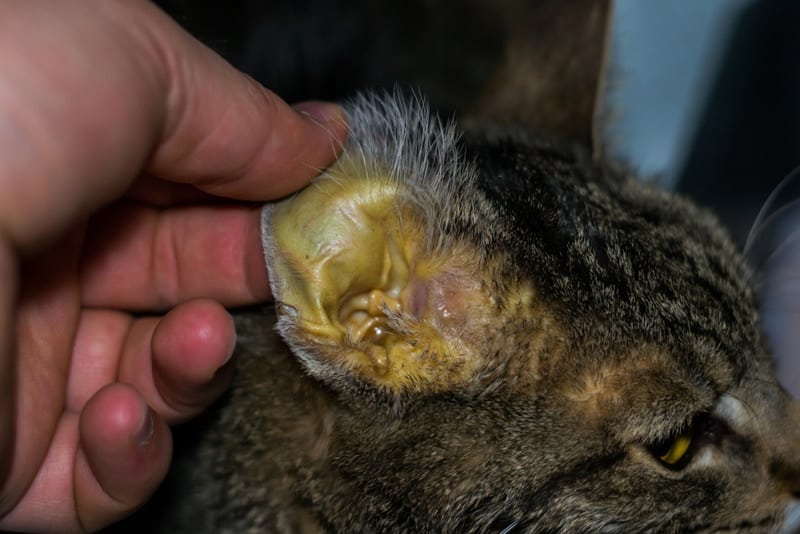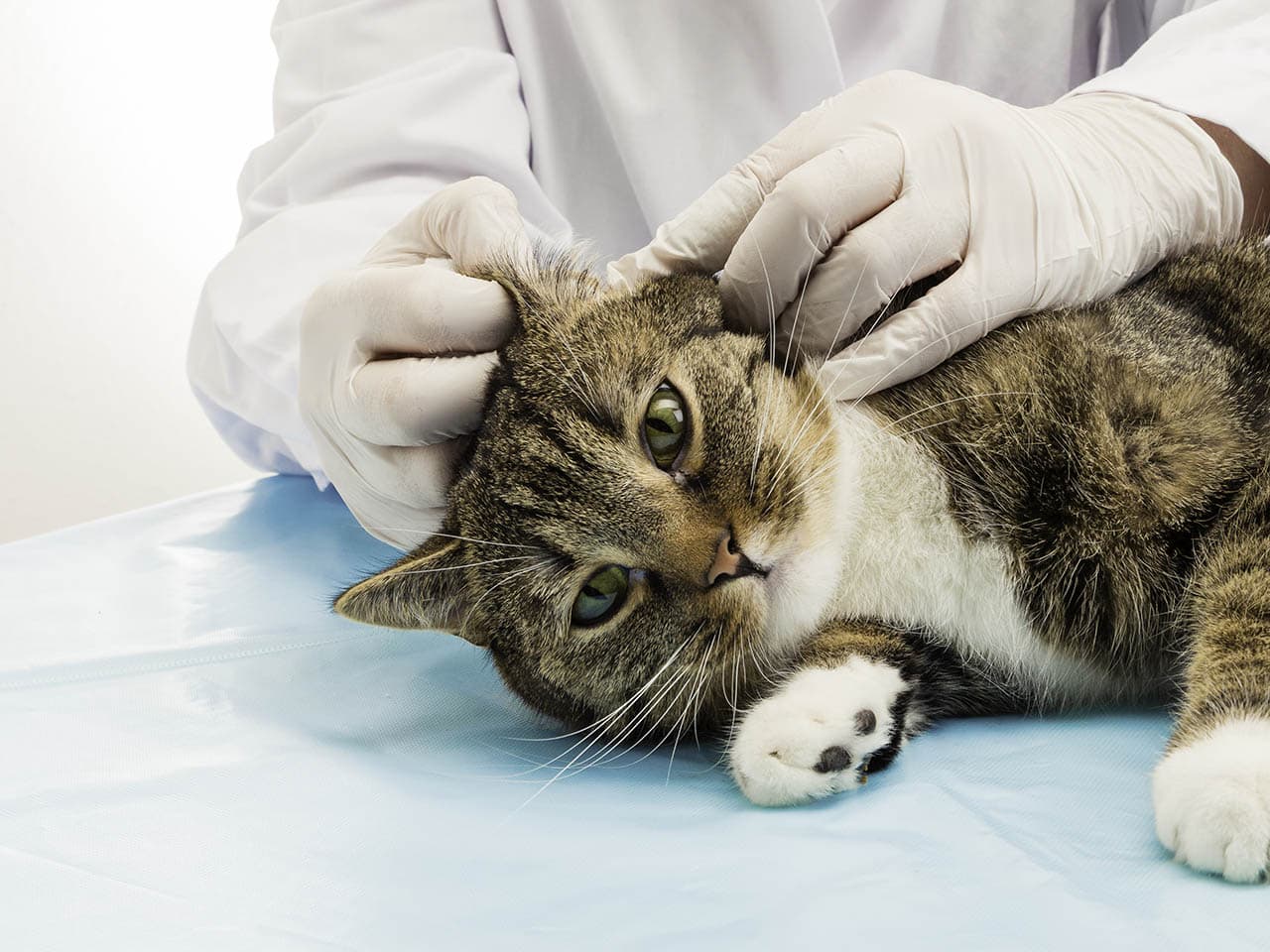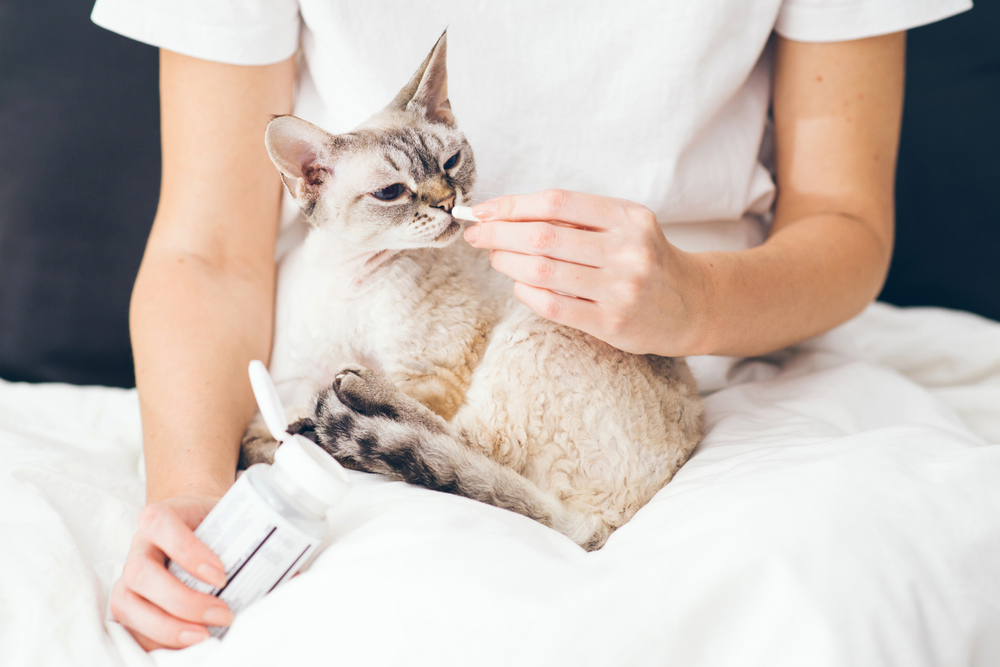Jaundice in cats is always a sign of a problem, usually a severe disease. That problem could be an infectious disease, physical abnormalities, trauma, cancer, degenerative change, etc. That problem could be a lot of things. Many people associate jaundice with liver disease because it is the liver that keeps us from becoming yellow. But several things can also get in the way.
Jaundice can be a glaring sign of disease but figuring out the problem can be complicated.
What Is Jaundice?
Jaundice is discoloration of the tissues by abnormal levels of a chemical in the blood that is pigmented yellow, sometimes called icterus. As the pigmented chemical builds in the system, it accumulates in tissues. The tissues turn a yellowish hue which can be seen on a physical exam—a veterinary exam. Icterus can also be identified with bloodwork. The blood work can still show the abnormalities even if the cat is not turning yellow.
It is a physiological problem, meaning there is a problem with the normal functioning of the body.
What Are the Signs of Jaundice?
Here are some of the more obvious signs of jaundice:
- Yellowing of the skin (perhaps the inner ears where the fur is thinner)
- Yellowing of the whites of the eyes
- Yellowing of the mucous membranes
Jaundice occurs when abnormal pigments in the blood turn tissues yellow, and the yellow can then be seen through the skin since cats are covered in fur, though it can sometimes be hard to see.
The discoloration can also be seen in the whites of the eyes. If you gently lift or pull down the eyelids, you can either see the yellow on the whites of the eyes (sclera) or the mucous membranes circling the eyes.
You can also sometimes see it in their gums. Cat tongues are usually thicker than their gums, so you usually see it brighter on the gums.
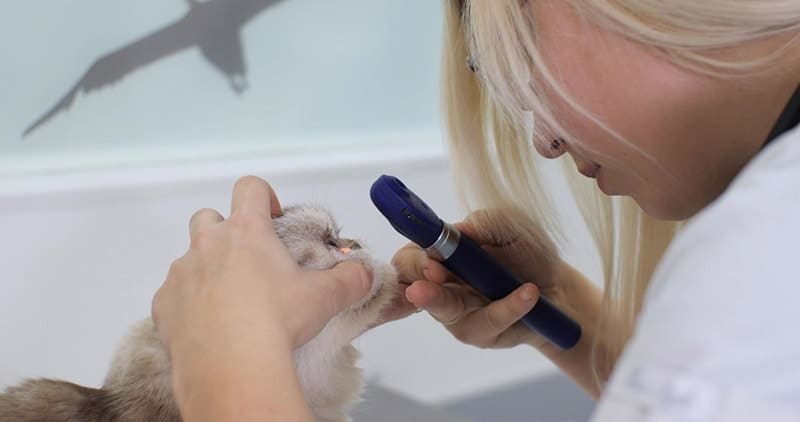
What Are the Causes of Jaundice?
Jaundice is caused by too much bilirubin in the bloodstream, a yellow-pigmented chemical.
Bilirubin is produced when red blood cells die and break down. The bilirubin excreted from the dying red blood cells is transported to the liver, where it is filtered and excreted from the body in poop.
In other words, bilirubin from the blood is absorbed and removed by the liver, where it travels to the digestive tract to be excreted from the body.
There are many diseases or problems that can cause the bilirubin pathway to get blocked up and cause jaundice. Severe inflammatory disease and sepsis can also cause jaundice in cats.
How Do I Care for a Cat With Jaundice?
How you care for your cat with jaundice will depend entirely on their diagnosis. A problem with the blood system requires different treatments compared to liver diseases.
The first thing to do is to get a diagnosis from the Veterinarian. You cannot fix jaundice at home; it is almost always a sign of significant disease. And leaving it undiagnosed and untreated is subjecting your cat to unnecessary illness and pain.
Following your vet’s directions and understanding your cat’s specific disease will be your next step. Once you have a specific disease to work with, the treatment options, the care you provide, and the prognosis will be knowable.
No magic pill, medication, food, therapy, prayer, supplement, exercise, or rest will cure jaundice. The underlying cause must be identified if there is any chance.
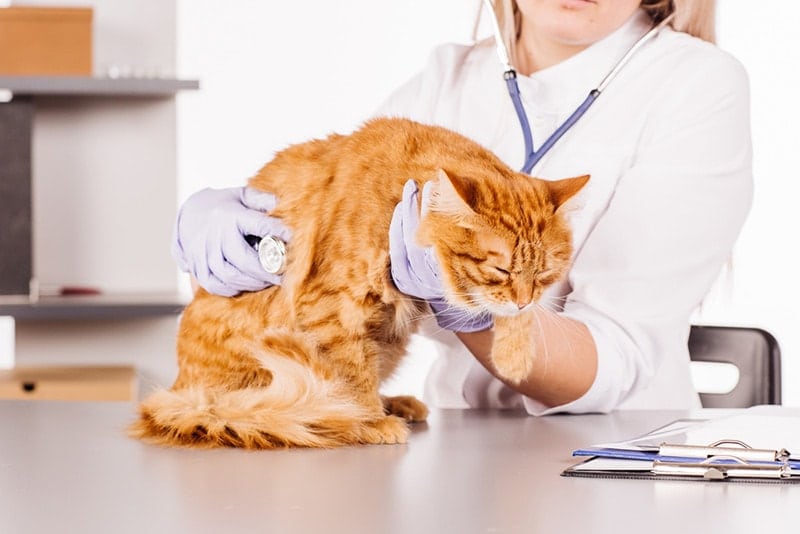
 Frequently Asked Questions
Frequently Asked Questions
What to expect at the vet?
Jaundice is a sign of severe disease. So, expect to perform diagnostic tests. The first test the vet will run is probably bloodwork, but it could also include the following:
- Diagnostic imaging (ultrasound
- X-rays
- CT scan
- MRI
- Urinalysis
- A fecal test
Expect a diagnostic visit or two, with follow-ups to assess how the treatment is working.
Can a cat recover from jaundice?
This depends entirely on the cause. There are dozens of problems that can cause jaundice, and each one has its own prognosis and complications. Looking at all of them here is overwhelming and a stressful exercise.
What is the disease jaundice?
Jaundice is a clinical sign of disease. It is not a disease itself. It is similar to coughing in humans. Coughing is a sign of a problem. But that problem could be a cold, asthma, or choking. All are different problems with different treatments and a wildly different prognosis (likelihoods of survival).
How come I didn’t notice that my cat had jaundice until it went to the vet?
Don’t feel bad. It can be hard to see the yellow. While it may seem like a silly thing to miss, not only does the fur do a shockingly good job of hiding it but sometimes the yellow shade can be very subtle and can sneak up on you.
Plus, how often do you carefully examine your cat’s mouth or the outer corners of their eyes? Not often. And most of the time, doing so is stressful for everyone and unnecessary. There is no point in risking your fingers getting bitten just to check all the time. This is what veterinary health checks are for.
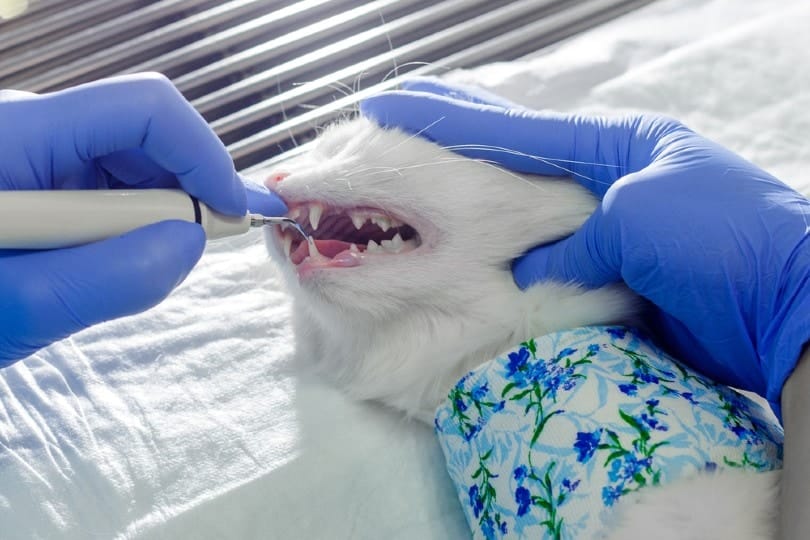
Conclusion
There are several problems that can result in jaundice, so there is no definitive answer as to why your cat is looking a bit yellow. Icterus is a complicated clinical sign of disease. Working with your vet is the best thing to do if your cat is jaundiced since yellow is probably not the best magical color they could turn.
Featured Image Credit: Todorean Gabriel, Shutterstock
Contents
- What Is Jaundice?
- What Are the Signs of Jaundice?
- What Are the Causes of Jaundice?
- How Do I Care for a Cat With Jaundice?
- Frequently Asked Questions
- What to expect at the vet?
- Can a cat recover from jaundice?
- What is the disease jaundice?
- How come I didn’t notice that my cat had jaundice until it went to the vet?
- Conclusion

